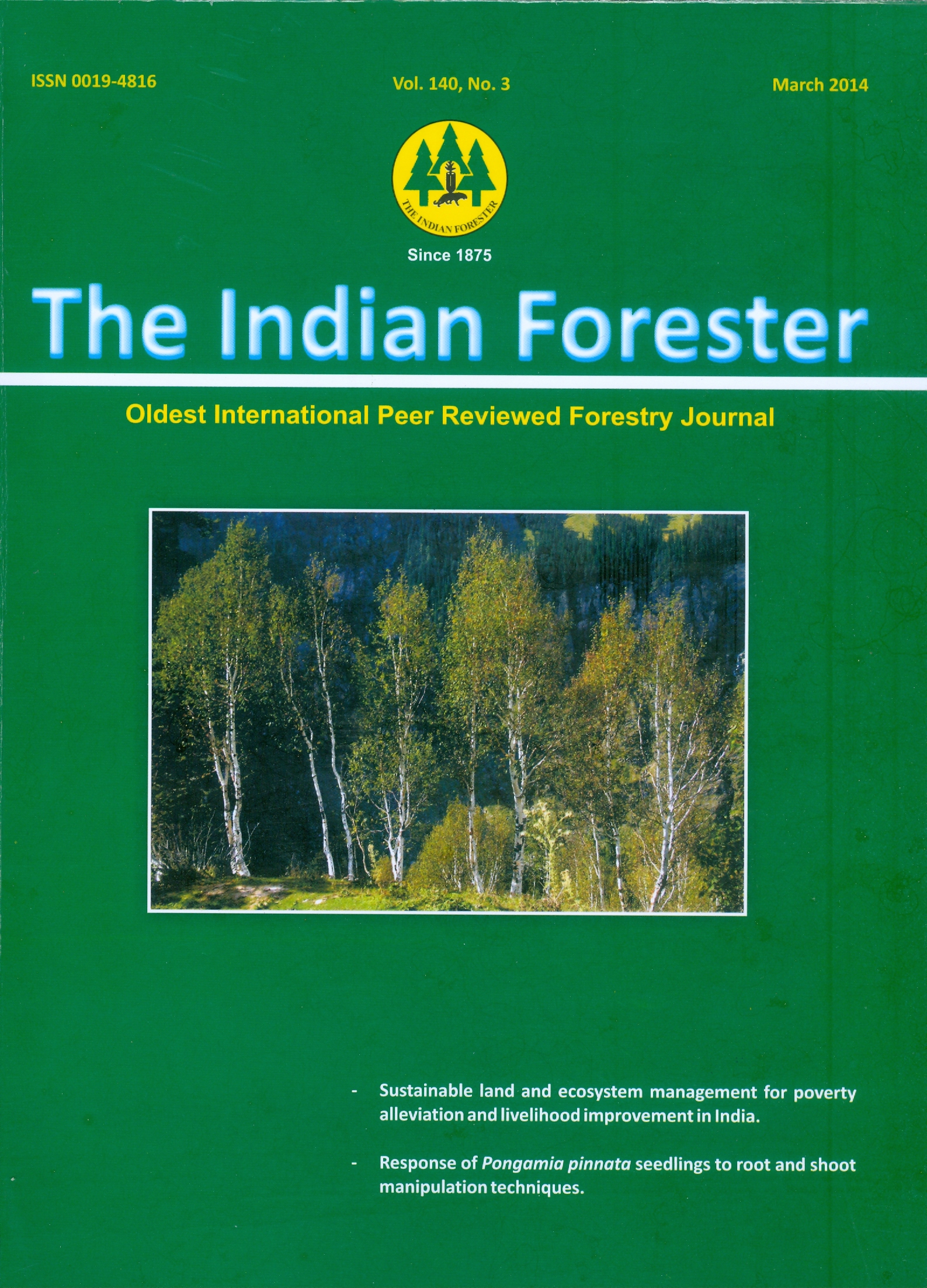Assessing forest Management Outcomes : a Multivariate Approach
DOI:
https://doi.org/10.36808/if/2014/v140i3/47437Keywords:
Forest Management, Multi VariateAbstract
Single variable, i.e. forest density, is generally used by the foresters to evaluate forest management outcomes. Joint Forest Management (JFM), has given a role to local communities in forest management. This indicates towards the requirement of a multivariate approach to assess outcomes that includes both ecological and anthropogenic variables. In the study carried out in 24 JFMCs in 3 districts of Madhya Pradesh, having Sal (Shorea robusta), Teak (Tectona grandis), and Miscellaneous Forests, the outcomes were compared on both single variable of forest density and rd multiple variables (Index Value arrived at by Principal Component Analysis). On single variable 1/3 of the 24 JFMCs were found to have better outcomes but when multivariate approach was used the number of JFMCs increased to 12 (half of 24 villages). Multivariate approach indicates more realistic assessment as social context variables are also used. Moreover, this assessment reflects the capacity of these 4 additional JFMCs to contain anthropogenic influences while being weak on the technical aspects of forest management. Thus multivariate approach gives a tool in the hands of policy makers and forest managers to make precise policy interventions - on technical or social aspects - in a particular JFMC. However, more studies would be required before it is adopted.Downloads
Download data is not yet available.
Downloads
Published
2014-04-06
How to Cite
Kumar, P., Mishra, A., & Wadehra, S. (2014). Assessing forest Management Outcomes : a Multivariate Approach. Indian Forester, 140(3), 230–237. https://doi.org/10.36808/if/2014/v140i3/47437
Issue
Section
Articles
License
Unless otherwise stated, copyright or similar rights in all materials presented on the site, including graphical images, are owned by Indian Forester.





